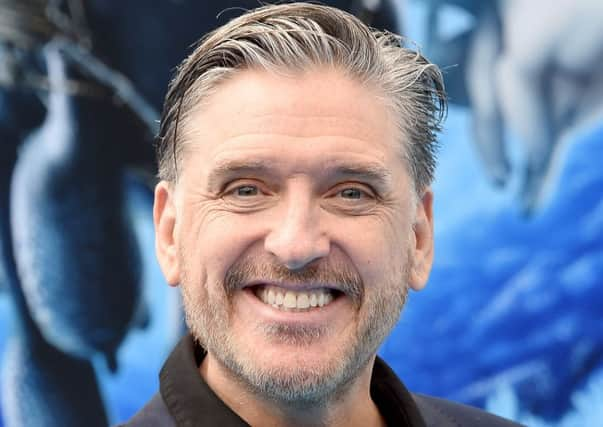Craig Ferguson says he was ‘taught to fear and loathe the English’ when growing up


Writing in his newly-published memoirs, the stand-up, actor and chat show host, who shot to fame after moving from Scotland to the US in the mid-1990s, suggested they were committing “an act of self robbery, which will severely damage your chances of joy or happiness”.
Brought up in Cumbernauld, Lanarkshire, Ferguson said his generation grew up believing “we were victims of the system” and said he felt “indoctrinated” with negativity.
The 57-year-old criticises Braveheart and Outlander as “revisionist fairytales”, describes Bonnie Prince Charlie as a “chancer” in his book and admits he even dislikes Brave, the Disney-Pixar film set in Scotland, which he starred in as a clan leader.
Ferguson writes of his belief that Scotland’s modern-day “separatists” were more motivated by economics. He said the current independence movement could be traced back to Margaret Thatcher’s policies as Prime Minister.
Ferguson’s first taste of the entertainment industry came when he played in a Glasgow-based punk band Dreamboys in the early 1980s with Peter Capaldi, before the art school student encouraged Ferguson to try his hand at stand-up.
In his book, Riding the Elephant, Ferguson recalls how he was gripped by nerves over making his debut at the Edinburgh Festival in 1986 – in the guise of his on-stage alter ego Bing Hitler – because he thought audiences would be made up of English people, but ended up having “the time of my life”. He said: “English people in the audience were daunting because since I was a child I have been taught to fear and loathe the English.
“It’s an absurd prejudice that quite a few Scots still suffer from. I say suffer, because I believe if you are prejudiced you are committing an act of self robbery, which will severely damage your chance of joy or happiness. Tribalism is not just a curse for those who are victims of its cruel nonsense, but also for the stubborn evolutionary throwbacks who believe that it has validity as a value judgment.”
Ferguson, who will stage his first UK stand-up show in the UK for 25 years at the Edinburgh Playhouse in August, recalls how his 1986 Fringe show led to offers of work on TV and in London, including a tour with rising English star Harry Enfield.
He writes : “I was wrong about Edinburgh. The audiences were great, even though they were half-English, and I had the time of my life.
“I got that first adrenaline-laced jolt of success and it launched me into my current professional, artistic life with a thrilling force that damn near killed me.” Recalling the “cold, cruel hand of austerity” of the Thatcher era in Scotland, Ferguson said: “I think that the rise of the current Scottish independence movement was instigated by Margaret Thatcher and her policies, which were particularly hard on the Scots. Modern separatists are much more inclined to be motivated by economics than by any revisionist fairytales like Outlander or Braveheart or by romantic myths surrounding dubious historical chancers like Bonnie Prince Charlie.”